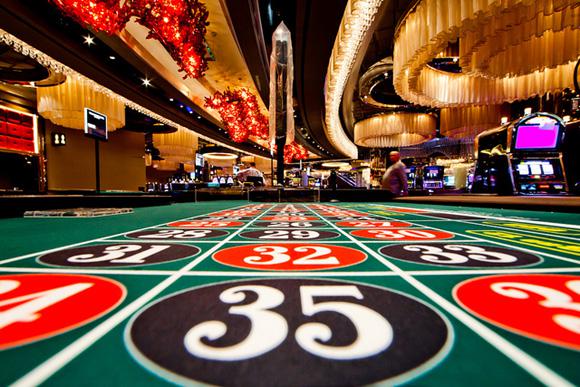What science says about our desire to play games
Everyone has a different attitude towards casinos. Some people think that only avid gamblers can play slots and roulette. Some see it as just innocent entertainment that can bring in a little money. But what do scientists say? Let’s take a look at some of the interesting conclusions that scientists have come to in their research on casinos.
Sounds in casinos encourage risk-taking
Researchers at the University of British Columbia have found that images of money and the sound of slot machines can directly influence users’ decisions and force them to take more risks.
The findings were published in JNuurosci. The experiment involved 100 adults. They played gambling games in the laboratory. The experimental machines had the same “bells and whistles” system that is used to announce winnings in real slot machines. Virtual slot machines (which, by the way, you can turn off sound effects) are available at any 3 euro deposit casino.
Researchers found that participants in the experiment were less likely to concentrate on information about their chances of winning at any game when money images and casino jingles appeared while gambling and informing them of their winnings.
“We also noted that participants’ pupils dilated: this allows us to suggest that people were more excited or engaged when winning was paired with audio-visual cues,” says Catharine Winstanley, senior author of the study.
In doing so, the researchers found that participants showed greater restraint in their decision-making when sensory cues were turned off. These findings give scientists insight into why it is so difficult for gamblers to resist the lure of gambling.
Rats can play in casinos too
Canadian scientists have determined that bright lights and loud noises provoke people to gamble and take unnecessary risks. By gambling unnecessarily, a person runs the risk of losing heavily.
Scientists from the University of British Columbia have obtained data on the effect of specially flashing lights on organism during experiments on rats, writes “Around the World”.
The researchers placed rodents in specially equipped boxes, which now and then lit up different lights in regular intervals, and also sounded specially selected melodies. The light and sound reproduced the atmosphere of a casino, which is particularly perceptive.
The guinea pigs in the boxes could choose from four different “games”, with different prizes and penalties for losing. The winners got a sweet reward, while the losers were sent to a penalty area and could not continue playing for a while.
Smart rats understood at once, that high risks are accompanied by high losses and playing big is not profitable. Therefore, they chose to play with minimal risks, not suffering much in the way of penalties and invariably receiving rewards. However, when specific lights and sounds were switched on, the rats began to take more and more risks, without regard for the risks involved.
Researchers using special drugs blocked these receptors in gambling rats, resulting in the rodents began to take fewer risks and eventually ceased to show addictive behaviour.
The researchers suggested that a similar strategy might work in the case of humans. However, this method of dealing with gambling addiction is not universal: suppressing dopamine receptors had little effect on the behaviour of rats gambling in boxes without sound or light signals.
Craving for the money game: what casino players experience
Up to 85% of gamblers who sit down in front of a screen and play a video slot get an unsettling sense. For this result, psychologists created the word “insatiability.” This is because despite having a fully replenished deposit, the player keeps spinning the reels again. The user loves playing the game more than the prizes.
Unexpectedly, the player has no interest in taking money out of the account. Simply put, scientists are more interested in the peculiar user behaviour than they are in withdrawal, where they do not predict the future actions. The leading expert on the peculiar behaviour of gamblers is said to be Berres Skinner.
The foundation of Professor Skinner’s scientific hypothesis was the process of the player’s enjoyment of the game. The researcher thoroughly examined animal brain function and came to an unexpected result. He put a hamster in a container with a button that, when pressed, releases food for the pet. The dependency on pressing the button to receive food eventually vanished as a result of adjusting the feeding strategy, yet the hamster continued to do so.
Professor Skinner compared the situation to a gambler. Instead of focusing on the outcome, the player enjoys the gameplay itself. The authorities granted the scientist permission to do research on gaming addicts.
Physicists have developed a quantum casino concept
Many scientists back in the last century began to put forward various theories that would create a fair environment for casino gambling. Not so long ago, the scientific publication Quantum Information published the development of a new concept of quantum casino, which in the game excludes the presence of an intermediary. Scientists from the University of Bristol (England), together with Chinese colleagues have developed technology, the essence of which is to equalise the chances of the player and the gambling establishment. How is a quantum casino system implemented in practice?
This system is based on the principles of quantum mechanics. The role of the instrument of any casino will be a pair of entangled particles, which are in closed boxes. One belongs to the player and the other to the gambling establishment. After selecting a bet, the player opens his box. If the particle is not there, he requests a second box from the casino, which shows the actual result. An empty box belonging to the casino indicates that the player has lost fairly. The workings of a fair casino have been tested by scientists. They noted that all attempts to cheat the system failed. It only led to a reduction in winnings.
Levelling the playing field between casinos and players… with crocodiles
Finally, a funny study. Australians Matthew Rockloff and Nancy Greer won the Ig Nobel Prize in economics. These researchers found that if a person holds a crocodile or other dangerous animal in their hands, they become inclined to place higher bets in casinos. The authors of the study found in their experiments that holding a predator mistakenly perceives nervous tension as a signal that one is lucky and can expect to win big. You won’t have to keep any crocodiles if you choose one of the top slot Irish sites and play your favourite slots at home.
























